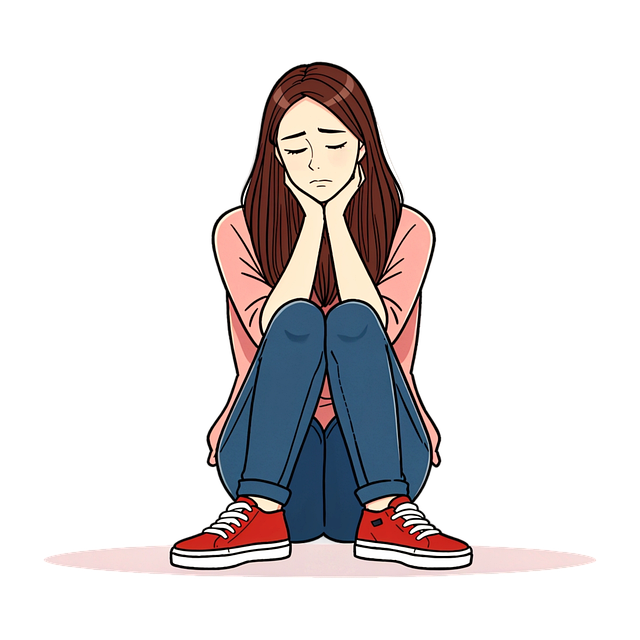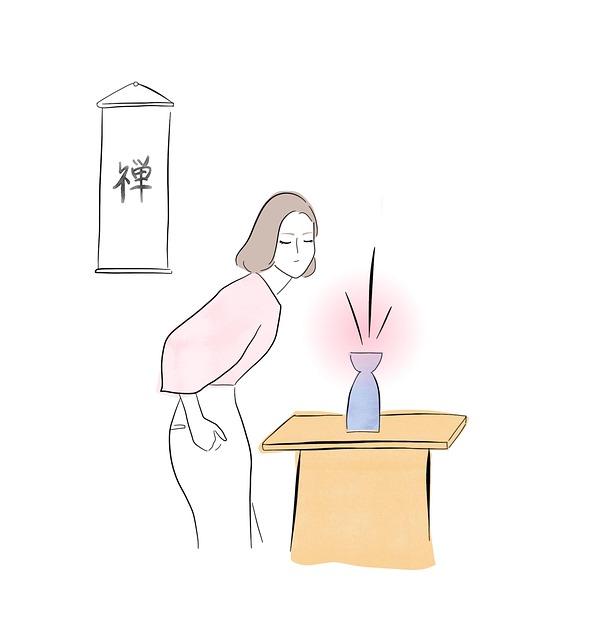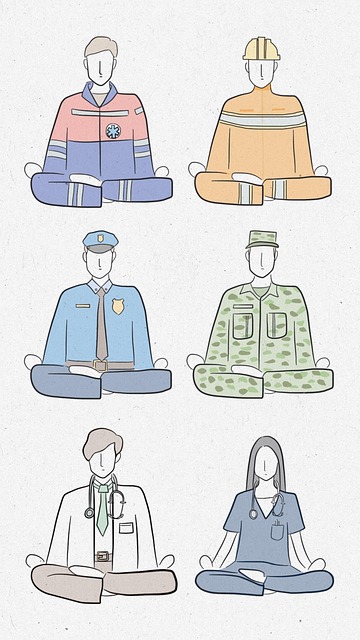Mental wellness is a vital but often overlooked aspect of overall well-being, encompassing emotional, psychological, and social health. In today's stressful world, prioritizing mental wellness is crucial for managing conditions like phobias, improving relationships, and enhancing quality of life. Self-care practices, tailored through professional guidance like Arvada Phobias Therapy, involve mindfulness, exercise, creativity, and compassion to create a sustainable routine. This approach fosters self-acceptance, stress management, and inner strength, ultimately promoting holistic well-being.
Mental wellness is paramount for overall health, yet cultivating self-care routines can be challenging. This comprehensive guide navigates your journey towards optimal mental well-being through self-discovery and structured care. We explore strategies to identify personal needs, highlighting the importance of a tailored routine. Learn about essential components, including incorporating Arvada Phobias Therapy for addressing specific anxieties. Discover tips for sustaining and adjusting your self-care practices as you embrace a transformative mental wellness path.
- Understanding Mental Wellness and Its Importance
- Identifying Personal Self-Care Needs
- Crafting a Routine: Essential Components
- Incorporating Arvada Phobias Therapy
- Sustaining and Adjusting Your Self-Care Journey
Understanding Mental Wellness and Its Importance

Mental wellness is a vital aspect of overall health that often gets overlooked or stigmatized. It encompasses our emotional, psychological, and social well-being, influencing how we think, feel, and act in various situations. Understanding mental wellness involves recognizing that it’s not just the absence of mental illness but also about fostering resilience, adaptability, and positive coping skills. In today’s fast-paced world, where stress and anxiety are prevalent, prioritizing mental wellness is more crucial than ever.
The impact of good mental health extends far beyond individual experiences. It affects our relationships, productivity, and overall quality of life. For instance, developing coping skills can help individuals manage phobias and fears effectively, as offered by Arvada Phobias Therapy. Public awareness campaigns that promote positive thinking and mental wellness initiatives play a significant role in creating supportive communities. By destigmatizing conversations around mental health, we can encourage people to seek help and develop routines that nurture their mental wellness.
Identifying Personal Self-Care Needs

Identifying Personal Self-Care Needs is a crucial first step on your journey to enhancing mental wellness. This process involves introspecting and becoming aware of what truly nourishes and soothes your mind, similar to how compassionate cultivation practices encourage self-understanding. Start by evaluating your daily life—are there activities or habits that consistently leave you feeling calm and content? Perhaps it’s spending time in nature, practicing mindfulness exercises, engaging in creative pursuits, or connecting with loved ones. Understanding these triggers is akin to learning the intricate tapestry of your own emotional landscape.
In addition to these personal touchpoints, consider specific areas needing attention. For instance, if you frequently struggle with anxiety or phobias, as addressed by Arvada Phobias Therapy, incorporating stress management workshops within your self-care routine could be transformative. Similarly, mood management techniques can be tailored to your unique needs, whether it’s through structured practices or simple lifestyle adjustments. The key lies in recognizing what works best for you, making self-care a personalized and effective tool in maintaining optimal mental health.
Crafting a Routine: Essential Components

Crafting a self-care routine for mental wellness involves incorporating essential components tailored to your unique needs. Start by identifying activities that nurture your mind, body, and spirit. This could include regular exercise, mindfulness practices such as meditation or deep breathing, engaging in creative outlets like art or writing, spending quality time with loved ones, or practicing self-compassion through journaling or therapy sessions with professionals from Arvada Phobias Therapy.
Consider incorporating compassion cultivation practices to enhance your mental wellness routine. These practices encourage self-acceptance and kindness, which are crucial for managing stress and anxiety relief. Additionally, enrolling in Mental Wellness Coaching Programs Development can offer valuable guidance on creating a sustainable routine. By combining these strategies, you’ll develop a holistic approach that addresses various aspects of your mental health, fostering overall well-being.
Incorporating Arvada Phobias Therapy

Incorporating Arvada Phobias Therapy into your mental wellness self-care routine can significantly enhance emotional well-being promotion techniques and inner strength development. This innovative approach targets specific fears and phobias, enabling individuals to confront and overcome their emotional healing processes. By engaging in Arvada Phobias Therapy, you embark on a journey of self-discovery, learning to manage and ultimately dissipate the powerful emotions tied to your fears.
This therapeutic method goes beyond traditional talk therapy by offering practical strategies tailored to address the root causes of phobias. Through careful guidance from professionals, individuals can develop coping mechanisms that foster resilience and promote emotional healing. By integrating these techniques into daily life, you gain a deeper sense of control over your mental wellness, ensuring long-lasting benefits for both your emotional and psychological states.
Sustaining and Adjusting Your Self-Care Journey

Sustaining a self-care routine is an ongoing journey that requires dedication and adaptability. It’s not about achieving perfection but rather cultivating practices that nurture your mental wellness over time. Think of it as tending to a garden; regular care and attention are needed for it to flourish, but the landscape may change with the seasons.
Just as Arvada Phobias Therapy offers tailored support for specific fears and anxieties, your self-care routine should evolve with your needs. What works one day might need adjustment the next. Be mindful of signs that your current practices are no longer serving you well—a lack of enthusiasm, feeling overwhelmed, or a resurgence of old challenges. Embracing flexibility allows you to integrate new strategies for emotional intelligence and confidence-boosting techniques, ensuring your self-care remains effective in supporting trauma support services for your mental wellness.
Developing a mental wellness self-care routine is a transformative journey. By understanding your unique needs, incorporating essential components like Arvada Phobias Therapy, and committing to sustained adjustments, you can enhance overall well-being. Remember, self-care isn’t just a luxury—it’s a necessary practice for navigating life’s challenges and cultivating resilience. Embrace the process, be kind to yourself, and watch as your mental wellness flourishes.














